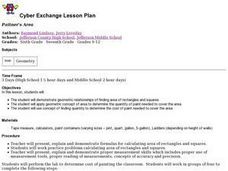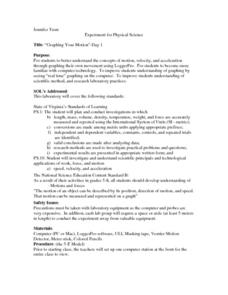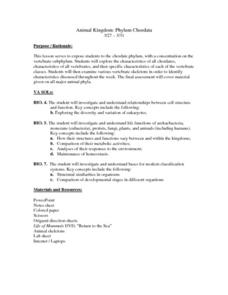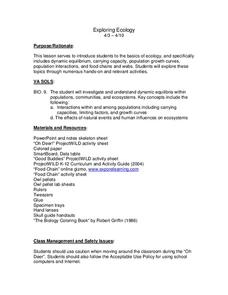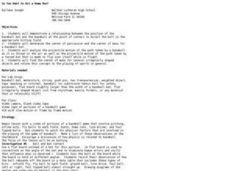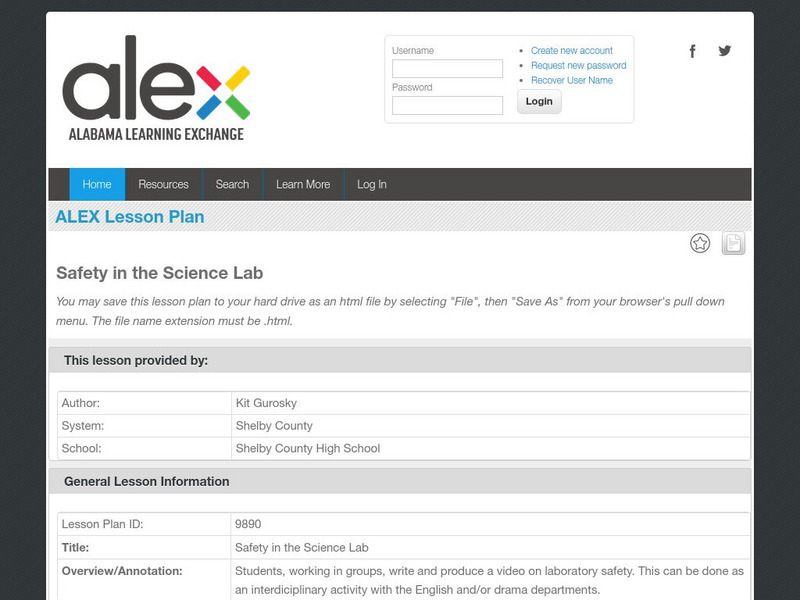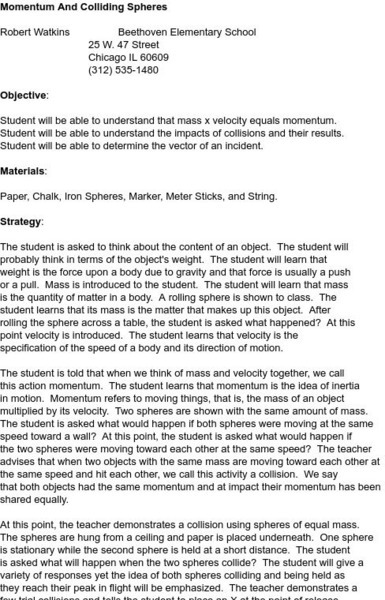Curated OER
Transpiration
Young scholars explore what affects the rate of transpiration in plants. They measure the rate of transpiration and analyze variables and additional factors that might slow or speed up the rate of transpiration.
Curated OER
Painter's Area
Students demonstrate geometric relationships of finding area of rectangles and squares. They apply determine the quantity of paint needed to cover the area by using the concept of quantity.
Curated OER
Cracked Marbles
Fourth graders determine how weathering, specifically ice, snow, and freezing water change the Earth's surface and rocks. After completing the investigations, they explain how heating and cooling expand and contract marbles until cracks...
Curated OER
The Penny Factory
Fourth graders identify the characteristics of a simple physical and chemical change. They describe objects by the properties of the materials from which they are made and separate or sort items using these properties. Students explain...
Curated OER
Determination of the percentage of Acetic Acid in Vinegar
Learners determine the concentration of acetic acid when the concentration of the base with which is titrated is known. They investigate how to weigh a sample using the balance, measure volumes using graduated cylinder, explore the...
Curated OER
Graphing Your Motion-Day 1
Ninth graders explore the concepts of motion, velocity and acceleration through graphing their own movement using LoggerPro. They become more familiar with the computer technology. Students explore graphing in real time and graph on...
Curated OER
Animal Kingdom: Phylum Chordata
Students use a dichotomous key to classify various vertebrate jar speciments into classes. They examine the speciments for general characteristics of each class and fill in a corresponding chart and then complete a few final assessment...
Curated OER
Exploring Ecology
Students explore the basics of ecology through numerous hands-on and relevant activities. They participate in an online food chain demonstration, which explores food web dynamics. They dissect owl pellets, examine the prey's bones, and...
Curated OER
Hyperbolas
Students find the center, foci, vertices, and asymptotes of hyperbolas. They graph hyperbolas and determine the equation of a hyperbola with a horizontal transverse axis. They derive general coordinates for the foci of a hyperbola with a...
Curated OER
Internet: Introducing Email
Students discuss the use and misuse of email and identify six new technology terms. After opening a word document, they experiment with fonts and sentence writing before pasting it into their email. The lesson plan concludes with...
Curated OER
So You Want to Hit a Home Run?
Pupils determine the center of percussion and the center of mass for a baseball bat. In this projective motion lesson students demonstrate the relationship between the position of the baseball bat and when its in the position in...
Curated OER
Not a Drop to Drink
Students design an experiment to determine which liquid is water. In this chemistry lesson, students perform the experiment as outlined in their design. They record observation and formulate conclusion.
Curated OER
Heat from Light
Second graders explore solar energy. In this science lesson, 2nd graders use hand lenses to see that light energy can be converted to heat energy.
Alabama Learning Exchange
Alex: Safety in the Science Lab
Students, working in groups, write and produce a video on laboratory safety. This can be done as an interdisciplinary activity with the English and/or drama departments.
Alabama Learning Exchange
Alex: Play It Safe!!!
Students will learn and demonstrate lab safety rules. They will work in groups to create a script and digital video of themselves acting out the incorrect practices of lab safety. The video will then be uploaded for access. Students...
NBC
Nbc Learn: Chance Discoveries: Lab Experiments, Unexpected Results
Many (if not most) experiments in the chemistry lab do not get significant results - or the expected results. For this Chemistry Now original video series, we highlight the curiosity, daring, and creativity of the best bench chemists by...
TeachEngineering
Teach Engineering: Biosensors for Food Safety
How can you tell if harmful bacteria are in your food or water that might make you sick? What you eat or drink can be contaminated with bacteria, viruses, parasites and toxins pathogens that can be harmful or even fatal. Students learn...
Other
Fayette County Schools: Frankenstein & Electric Safety
Site contains a science-based literacy activity that explains how to use electricity in a safe manner. A worksheet is provided.
Alabama Learning Exchange
Alex: Safety in the Automotive Service Technology Lab
This lesson will provide students with the required practices and procedures for working safely in the automotive service technology laboratory. Students will learn about required Personal Protective Equipment [PPE], safe tool and...
Science and Mathematics Initiative for Learning Enhancement (SMILE)
Smile: Colliding Spheres
This lab activity from the Illinois Institute of Technology lets young scholars investigate the impact of collisions upon the velocity and momentum of the colliding objects. Requires understanding of vectors.
Other popular searches
- Science Lab Safety Rules
- Science Lab Safety
- Biology Lab Safety
- Lab Safety Worksheets
- Lab Safety Rules
- Physical Science Lab Safety
- Biology Lab Safety Lesson
- Chemistry Lab Safety
- Teaching Science Lab Safety
- Lab Safety Lesson Plan
- Msds Lab Safety
- Lab Safety Lesson



